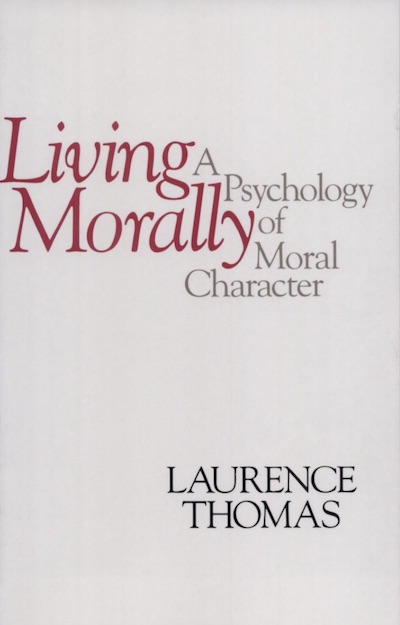By Laurence Thomas (NHC Fellow, 1982–83)

Philadelphia: Temple University Press, 1989
From the publisher’s description:
Laurence Thomas addresses two main questions in this philosophical exploration of morality: What constitutes a moral life? How does one acquire and maintain a good moral character? In answering these questions, he maintains that social interaction is the thread from which the fabric of moral character is woven, and he promotes friendship and parental upbringing as the most important forms of social interaction.
Thomas rejects the view now prominent in contemporary ethical theory that individuals are essentially self-interested. Instead he argues that a great deal of altruism can be found in the biological and psychological make-up of human beings. Thomas defends the view that sociobiology can serve as a basis for ethics. Regarding this "capacity for altruism" as a natural gift or talent, he observes that whether or not a quality flourishes is dependent upon the nature of one’s social environment. Thomas contends that within each person’s social environment, parental love, companion friendships, and our beliefs about how others will treat us provide the strongest encouragement for developing a good moral character.
Subjects
Philosophy / Sociology / Ethics / Morality / Altruism / Social Relations /Thomas, Laurence (NHC Fellow, 1982–83). Living Morally: A Psychology of Moral Character. Philadelphia: Temple University Press, 1989.